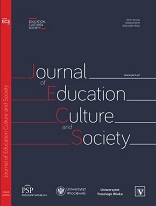Exploring achievement goals tendencies in students: the link between achievement goals and types of motivation
Exploring achievement goals tendencies in students: the link between achievement goals and types of motivation
Author(s): Albulene Grajcevci, Arif ShalaSubject(s): Higher Education , Social psychology and group interaction
Published by: Fundacja Pro Scientia Publica
Keywords: Intrinsic motivation;extrinsic motivation;achievement goals;Kosove;
Summary/Abstract: Aim. This research explored the link between motivation types and achievement goals. More specifically the research focuses on exploring goal endorsements among learners as well as their correlation with motivation. Methods. The sample of 600 participants was gathered among students enrolled in private (N= 156) institutions and public universities (N=444). The study was a quantitative one and utilized the Achievement Goal Questionnaire (AGQ-R) as well as the Intrinsic and Extrinsic motivation scales (Lepper, Corpus, &Iyengar, 2005). Results. The results stipulate that achievement goals are closely linked to situation factors such as university and department. Supporting the premise of fluidity of goal constructs. Ultimately, mastery approach, performance approach and performance avoidance goals did not discriminate between types of motivation, with three goals being positivelycorrelated to both types of motivation. Mastery avoidance goals were not correlated to any of the motivation types (intrinsic or extrinsic), but they showed a tendency to be negatively correlated to extrinsic motivation, a correlation that was not significant. Conclusion. Present research reveals that there are significant differences among participants in goal adoption according to year of study. Specifically, as expected first year students were significantly more mastery oriented than participants attending the second and third year of studies. Gender differences were also evident, with female students reporting higher levels of mastery orientation compared to male students. Finally, the inconclusive results regarding motivation types and achievement goals need future studies to reestablish the stipulated link.
Journal: The Journal of Education, Culture, and Society
- Issue Year: 12/2021
- Issue No: 1
- Page Range: 265-282
- Page Count: 18
- Language: English

